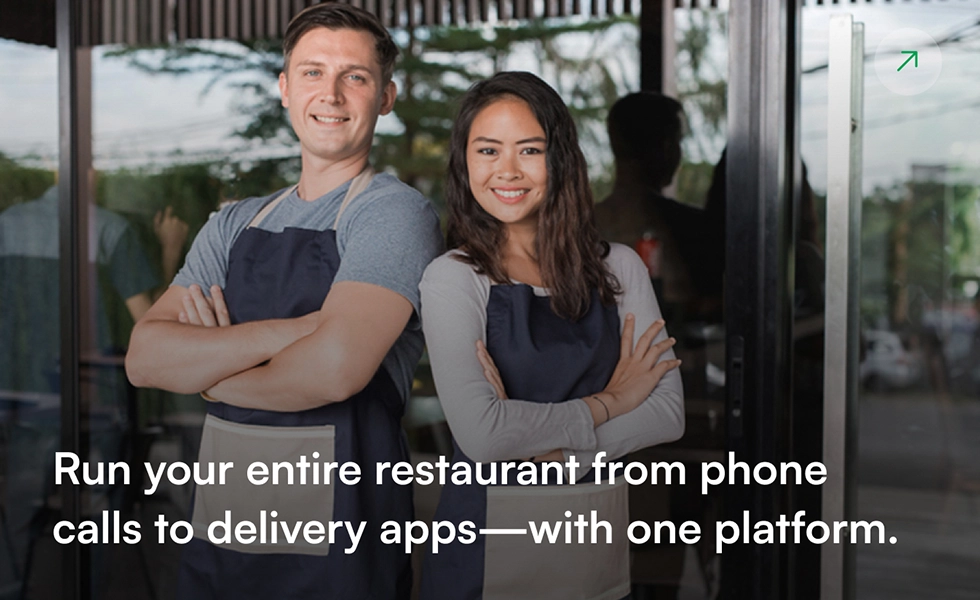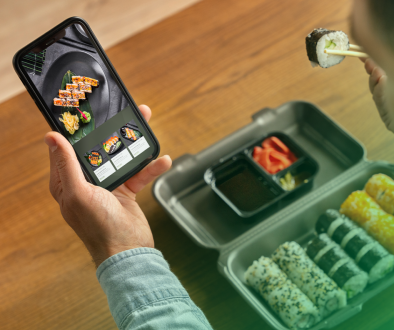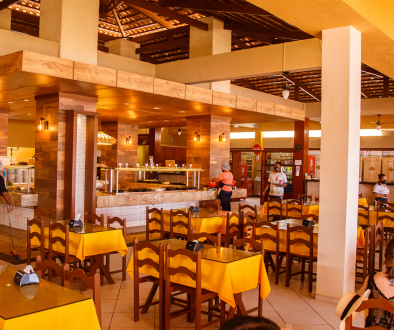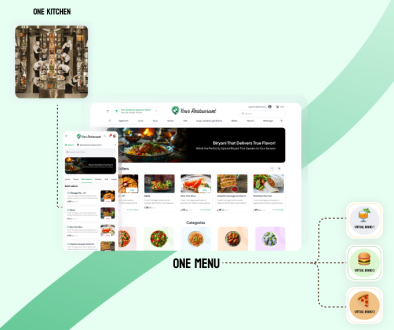Restaurant SEO Tips to Strengthen Your Online Visibility
The competitive dining landscape demands a strong online presence — it’s no longer a luxury but a necessity. Diners expect to discover, evaluate, and even place orders from restaurants online. If your restaurant isn’t easily found across search engines and digital platforms, you’re missing out on valuable customers. One of the most effective ways to increase visibility, attract more diners, and stay ahead of the competition is through restaurant SEO.
As online ordering and food delivery reshape how customers interact with restaurants, SEO has become more critical than ever.
Recognizing this shift, more restaurant owners are turning to search engine optimization for restaurants to boost visibility on Google, attract local diners, and drive online orders.
The good news? SEO for restaurants doesn’t have to be overly technical. With a few smart strategies, you can start building a strong digital presence that turns online searches into real-world reservations and sales.
Let’s explore seven actionable tips to get your restaurant ranking higher and bringing in more customers online.
What Is SEO?
Search Engine Optimization (SEO) is the process of improving your website’s visibility on search engines like Google. For restaurants, SEO is about ensuring your business shows up when potential customers search for phrases like “best Italian restaurant near me” or “vegan food in [your city].”
By implementing the right SEO strategy for restaurants, you can rank higher in search results, drive more traffic to your site, and attract more diners.
Why Is SEO Important for Restaurants?
When hungry diners search online for food, they want immediate results. Whether they’re looking for a “Thai restaurant open now” or “family-friendly restaurants nearby,” showing up at the top of the results can significantly impact your foot traffic and online orders.
SEO for restaurants ensures your business is found by the right people at the right time. With the rise of mobile searches and food delivery, visibility in search results is more crucial than ever.
The Benefits of Search Engine Optimization for Restaurants
Implementing effective SEO marketing for restaurants provides multiple benefits:
- Higher Google rankings for local food-related searches
- Increased website traffic and online reservations
- More takeout and delivery orders
- Better brand visibility in your local market
- Competitive edge over nearby restaurants
- Improved user experience and mobile performance
Investing in search engine optimization for restaurants means putting your brand in front of customers when they’re ready to make a decision.
Restaurant SEO Tips to Help Your Site Reach #1 on Google
Create a Roadmap for Strategic Keyword Planning
Before optimizing your website, you need a solid keyword strategy. This involves identifying the terms and phrases your customers use to search for food, cuisine types, and restaurants like yours.
what is keyword planning?
Keyword planning involves researching high-volume, relevant terms like:
- “best seafood restaurant in [city]”
- SEO for food and beverage
- “fine dining in [neighborhood]”
Use tools like Google Keyword Planner or SEMrush to find these terms and categorize them based on intent: discovery, comparison, or conversion. Then, naturally include them in your content, meta tags, URLs, and headings.
Branded vs. Non-Branded Searches in Restaurant SEO
Branded searches occur when someone types your restaurant’s name directly into a search engine. These searches show that the user is already aware of your brand and is likely looking for specific details — such as your menu, hours of operation, location, or contact information. This indicates a high level of brand recognition and intent, making it essential that your digital presence is consistent and accurate across platforms. Ensuring your Google Business Profile, website, and listings are properly updated helps convert these high-intent visitors into paying customers.
On the other hand, non-branded searches refer to queries that relate to your restaurant’s offerings but don’t include your name — like “best Thai food near me” or “rooftop dining in [city].” These searches typically come from potential customers in the discovery phase, exploring their dining options. Ranking for non-branded keywords is vital for reaching new audiences and expanding your customer base. To appear in these results, your restaurant must implement key SEO strategies such as optimizing meta tags, creating location-specific content, and incorporating relevant keywords throughout your website.
Both branded and non-branded searches play an important role in your overall restaurant SEO strategy. While branded queries reflect loyalty and retention, non-branded searches present growth opportunities by capturing new diners actively searching for a great dining experience.
Optimize for Local SEO for Restaurants
Local SEO for restaurants is key to showing up in “near me” searches. Here’s how to do it right:
- Claim and optimize your Google Business Profile
- Use consistent Name, Address, Phone Number (NAP) across the web
- Add your restaurant to Apple Maps, Yelp, TripAdvisor, and Bing Places
- Include location-specific keywords like “Mexican food in Austin” on your site
- Use schema markup to help search engines better understand your business info
Local search signals directly affect your visibility in map packs and mobile searches.
Boost Visibility with Rich Snippets in Search Results
Rich snippets are enhanced search results that display additional information beyond the standard title, URL, and description. For restaurants, this can include star ratings, reviews, images, menu items, hours, and pricing — all of which can significantly increase click-through rates.
Implementing structured data markup, such as schema.org, on your website helps Google better understand your content and display these enhanced results. When a diner searches for your restaurant or related cuisine, rich snippets make your listing more visually appealing and informative, which can boost engagement and visibility.
For example, adding schema for “Restaurant,” “Menu,” or “AggregateRating” helps display your menu or star rating directly in search results. This added detail improves your restaurant’s SEO performance by driving more qualified traffic and helping your site stand out in competitive local searches.
AI-Enhanced Content Strategy for Local Restaurant Pages
For restaurants with multiple branches or service areas, location pages are essential for targeting local diners and capturing non-branded search traffic like “best pizza in [city]” or “vegan restaurant near [area].” However, manually optimizing dozens (or hundreds) of pages can be time-consuming — which is where AI-powered content and SEO tools come in.
Modern AI-driven SEO platforms can dynamically generate high-quality, keyword-rich content tailored to each location. This includes optimizing title tags, meta descriptions, header structures, and localized content based on search trends in that specific area.
Using an AI-driven SEO enhancement platform ensures consistency across your pages while increasing efficiency, allowing your team to scale content creation and keep up with algorithm updates. These tools also help identify gaps in keyword targeting and suggest opportunities for internal linking and content expansion — ultimately improving local SEO for restaurants and driving more organic traffic to each of your physical locations.
Get Featured on Review Platforms and Boost Your Restaurant’s Reputation
Online reviews are one of the most powerful trust signals in local SEO — and they can directly influence your restaurant’s visibility and click-through rate (CTR).
Studies show that listings with star ratings and customer reviews get significantly higher CTRs, meaning more people visit your website or menu page. More traffic = more potential customers.
In addition, Google considers reviews as a ranking factor in local search results. Restaurants with more positive, recent reviews are more likely to appear at the top of local packs. Your star rating can also be displayed directly in Google search results, giving you an edge over competitors and encouraging diners to choose your restaurant.
To take full advantage:
- List your business on popular review platforms like Google, Yelp, TripAdvisor, and OpenTable
- Encourage satisfied customers to leave reviews after dining
- Respond professionally to all reviews — both positive and negative
- Keep your profiles updated with accurate contact info, hours, and images
Maintaining a strong presence on review platforms is a vital part of any effective local SEO strategy for restaurants.
Get High-Quality Links to Boost Your Restaurant’s Website SEO
Backlinks, or inbound links from other sites, are critical for building authority in Google’s eyes.
what is link building?
Link building is the practice of earning links from reputable websites — like food bloggers, local event pages, tourism boards, and community guides — back to your restaurant’s website.
Why Link Building Matters for Restaurant SEO Success
Because each link signals to search engines that your website is trustworthy and valuable. A few ideas:
- Partner with local influencers or food bloggers
- Sponsor local events or charities and ask for a link
- Submit press releases to food publications
- Join restaurant directories and associations
These strategies boost SEO services for restaurants by improving your domain authority.
Make Your Restaurant Website Mobile-Friendly to Attract More Guests
Most customers search for restaurants from their phones. That’s why mobile SEO for restaurants is crucial.
Make sure your website:
- Loads fast (under 3 seconds)
- Uses responsive design for any screen size
- Has easy-to-click buttons and links
- Offers simple navigation and fast access to menus, hours, and booking options
- Is built with secure HTTPS
Google prioritizes mobile-friendly websites in its rankings, so this directly impacts your visibility.
Optimize Your Online Ordering System for a Seamless User Experience
With the growing demand for digital convenience, having an online ordering system is now a must-have feature for modern restaurants. But simply offering online ordering isn’t enough — the system needs to be intuitive, fast, and user-friendly to ensure customers complete their orders without frustration.
If the ordering process is confusing, slow, or glitchy, users are likely to abandon their cart and look elsewhere — costing you valuable revenue. Worse yet, a poor user experience can increase your website’s bounce rate, signaling to Google that your site isn’t meeting user expectations. This can negatively impact your SEO for restaurants and lower your ranking in search results.
To avoid this, regularly test your online ordering system:
- Walk through the process as a customer would — from selecting items to checkout
- Identify and fix any usability issues, delays, or unclear steps
- Ensure the experience is smooth across all devices, especially mobile
- Consider feedback from actual users to improve design and functionality
Whether you develop your own platform or use a third-party solution, optimizing your online ordering flow enhances customer satisfaction and supports your restaurant SEO strategy by reducing bounce rates and increasing conversions.
Launch a Blog to Strengthen Your Restaurant’s SEO Strategy
A blog can fuel your SEO marketing for restaurants by targeting long-tail keywords and driving continuous organic traffic.
Here are blog topic ideas:
- “Top 10 Dishes to Try in [Your Restaurant]”
- “Behind the Scenes at Our Kitchen”
- “Best Date Night Restaurants in [Your Area]”
- “Seasonal Specials and Chef Recommendations”
Blog content helps you rank for questions and searches that don’t fit on your main pages. Plus, it keeps your site fresh — another ranking factor Google loves.
In today’s digital-first world, having a strong SEO strategy for restaurants is no longer optional — it’s a key ingredient for success. From local SEO and keyword targeting to mobile optimization and content creation, each tactic plays a vital role in improving your restaurant’s online visibility and attracting more local diners.
Ready to improve your search rankings and drive more customers to your tables? Invest in professional SEO services for restaurants and turn online searches into loyal guests.




